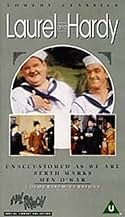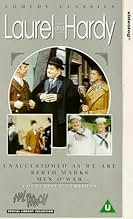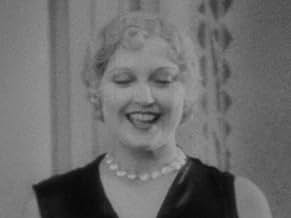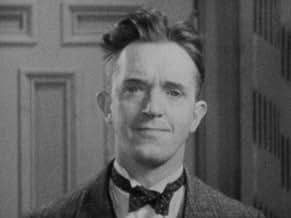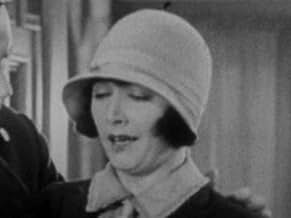Lorsque Mme Hardy refuse de préparer le souper, Monsieur Hardy décide de le faire pour lui et son ami Laurel, mais les choses tournent mal lors d'une crise de jalousie avec le couple marié d... Tout lireLorsque Mme Hardy refuse de préparer le souper, Monsieur Hardy décide de le faire pour lui et son ami Laurel, mais les choses tournent mal lors d'une crise de jalousie avec le couple marié d'à côté.Lorsque Mme Hardy refuse de préparer le souper, Monsieur Hardy décide de le faire pour lui et son ami Laurel, mais les choses tournent mal lors d'une crise de jalousie avec le couple marié d'à côté.
- Réalisation
- Scénario
- Casting principal
Avis à la une
Noticeably absent is James Finlayson, whose annoyed grunt inspired Homer Simpson's catchphrase.
The marital squabbling between Ollie and Mae Busch, later developed into a fine art, feels a little forced here, and occasionally suggests an improv exercise in an acting class. And while it's always a pleasure to see Thelma Todd and Edgar Kennedy in support, it's apparent that they're just as uncomfortable the new technology as our two stars. Generally speaking Stan comes off better than Ollie because so much of his material is visual, allowing for his hilariously over-scaled reactions. It could be mentioned too that Stan had more extensive stage experience than most of his colleagues, and was therefore more comfortable delivering dialog.
Still and all, Unaccustomed As We Are is a decent maiden effort in the new medium, and there are some interesting attempts to experiment with sound, as when Ollie puts on a jazz record during one of Mae's tirades and causes her to unintentionally rant in time to the music. It's kind of odd, but amusing. Other bits involving off-stage explosions, fights, and crash-bang sound effects must have made more of an impression when the film premiered, when their impact was still so new. But the major problem here is uncertainty about what sort of material will work in talkies and what won't. For instance, there are moments when the guys strike deliberately theatrical poses and deliver their lines in the style of ham actors, as when Ollie threatens to leave for South America "to do Big Things!" Cute, but this sort of shtick played a lot better in the silent days, and they would soon leave it behind. Dedicated Laurel & Hardy buffs will surely want to see their first talkie, but even the fans need to make allowances for (understandable) awkwardness and remember that soon after this debut, after a little more practice, the guys were producing talkies as strong as their late silent output.
A couple of technical notes: a silent version of Unaccustomed As We Are was also released in 1929 for theaters not yet wired for sound, and for many years it was the only version available, but it's deadly to watch and should be avoided. The major element of interest here, after all, is to observe how the gang at the Roach Studio handled the new technology, and without that you've got nothing. The soundtrack was not re-discovered until the 1970s, and, in the version of this film currently available on DVD, Reel Two is in pretty rough shape. During the latter scenes you can detect a strange, metallic echo under the dialog, which at times sounds almost like the chirping of birds. That's the closest you'll get to hearing the Koo-Koo Song in this one!
P.S. I'm pleased to add that there's a newly restored version of this film now available, and the sound quality in the second reel is much improved.
"Unaccustomed As We Are" was one of the first films to be shot on the new sound stage producer and studio owner Hal Roach built in the spring of 1929. The movie's title is drawn from the then popular phrase "Unaccustomed as we are to public speaking," which, despite the pair's previous stage experience, was still a somewhat jarring experience for all the actors on the set miked up for the first time. Laurel especially was wary about being amplified by the sound system because he was known to have a slight lisp and felt the technology would exaggerate his speech defect. It turned out no one picked up the lisp.
Directors Lewis Foster and Hal Roach used the new audio devices to great effect in "Unaccustomed As We Are.." When Edgar Kennedy is bragging about his female escapades to Laurel and Hardy, his wife is hiding in a traveling trunk so she wouldn't be discovered having the two men in her apartment. She later emerges enraged at his philandering and throws everything she can get her hands on at him. As the comedic pair retreat to their apartment across the hall, the noise heard off-camera emphasizes the violence taking place, an audio technique which will be used in many future comedies. Similarly, when Laurel falls down several flights of stairs, viewers don't actually see him tumbling, but they hear his body hitting the hard stairs. Such sound effects were impossible to replicate in silent films.
Throughout their movie careers, Laurel and Hardy were known for their catchphrases. "Unaccustomed As We Are" was the first time Hardy says "Why don't you do something to help me." The movie had to be shot during the evenings since Hal Roach had money to outfit only one studio set for audio. The 'Our Gang' film "Small Talk" was using the same set during mornings and afternoons because the childhood actors were restricted to only day shoots.
Although a vast majority of Laurel and Hardy's previous efforts ranged from above average to very good ('45 Minutes from Hollywood' being the only misfire and mainly worth seeing as a curiosity piece and for historical interest, and even that wasn't a complete mess), 'Two Tars' for me was their first truly classic one with close to flawless execution. Didn't find 'Unaccustomed As We Are' as one of their best and a bit disappointing compared to their late 1928 and previous 1929 efforts, which were among their best and funniest early work. It is still good and of interest historically, being their first talkie. It's strange at first but it works well and the dialogue itself is a lot of fun.
It may not be "new" material as such and the first part takes a little bit too time to get going.
Compared to the late 1928 and previous 1929 output, it is a little on the subdued and bland side, contrary to the insane craziness and wacky slapstick that was properly starting to emerge.
When 'Unaccustomed as We Are' does get going, which it does do very quickly, it is good enough fun, not always hilarious but never less than very amusing. It is never too silly, a wackiness that never loses its energy and the sly wit emerges here, some of the material may not be new but how it's executed actually doesn't feel too familiar and it doesn't get repetitive.
Laurel and Hardy are on top form here, both are well used, both have material worthy of them and they're equal rather than one being funnier than the other (before Laurel tended to be funnier and more interesting than Hardy, who tended to be underused). Their chemistry feels like a partnership here too, before 'Two Tars' you were yearning for more scenes with them together but in 'Unaccustomed as We Are' we are far from robbed of that. Their comic timing is impeccable.
'Unaccustomed as We Are' looks good visually, is full of energy and the direction gets the best out of the stars, is at ease with the material and doesn't let it get too busy or static. The supporting players are solid.
Overall, very good. Not essential or classic Laurel and Hardy, but a good representation of them. 7/10 Bethany Cox
Le saviez-vous
- AnecdotesThis was Laurel and Hardy's first talkie as well as the first all-talkie short released by the Hal Roach Studios. Three shorts that were already completed were withheld in order to rush this into release. The three completed shorts were then released with music and sound effects added.
- Citations
Mrs. Kennedy: Oh, good evening, Mr Hardy.
Ollver Hardy: Good evening, Mrs Kennedy. This my friend, Mrs Kennedy.
Mrs. Kennedy: Good evening.
Ollver Hardy: I brought him home for dinner, Mrs Kennedy.
Mrs. Kennedy: Oh, how lovely of you, Mr Hardy.
Ollver Hardy: How is Mr Kennedy, Mrs Kennedy?
Mrs. Kennedy: Oh, he's very well, thank you, Mr Hardy.
Ollver Hardy: Is Mr Kennedy home, Mrs Kennedy?
Mrs. Kennedy: No he isn't, Mr Hardy. I must be going. Good night, Mr Hardy.
Ollver Hardy: Good night, Mrs Kennedy.
[to Stan]
Ollver Hardy: That was Mrs Kennedy
[Stan seems taken aback]
Ollver Hardy: Well, what's the matter?
Stan: I was wondering who it was.
- Versions alternativesWhen originally released theatrically in the UK, the BBFC made cuts to secure a 'U' rating on both sound and silent versions. All cuts were waived in 1987 when the film was granted a 'U' certificate for home video.
- ConnexionsEdited into Dance of the Cookoos (1982)
Meilleurs choix
Détails
- Date de sortie
- Pays d’origine
- Site officiel
- Langue
- Aussi connu sous le nom de
- Their Last Word
- Lieux de tournage
- Société de production
- Voir plus de crédits d'entreprise sur IMDbPro
- Durée21 minutes
- Couleur
Contribuer à cette page


